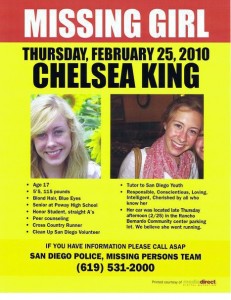As far as I can remember I was always watching TV. I think that stemmed from the fact that both my parents were working growing up and watching TV was an easy thing to do with the babysitter. Well, before I knew it I was hooked. It started slow, I grew up in Utah and the only channels the babysitter had were the local ones. I watched a lot of PBS as a child and I think I learned English watching Arthur and Wishbone, I can’t really remember. Anyway, the day I discovered cable there was really no going back.
In a deranged experiment gone wrong my parents cancelled/blocked cable when I was in eighth grade. Luckily they brought it back a year later because they couldn’t handle it either. Anyways, during that time I had no choice but to rely on the internet. It was hard because this was before streaming video was everywhere and you couldn’t really find episodes online. However I still had to know what was happening on the shows that I followed so I looked up the scripts online and read episode synopsizes to get by.
Pretty soon, the internet and streaming video changed and everything was soon online. My addiction to television was pretty much the gateway drug into my need for the internet. Since there is pretty much no cable on campus, well there is but it is much more convenient to watch TV in your dorm, the majority of my time online is spent watching TV. I also follow a couple of Asian dramas (blame my mother), which are actually really addicting, as well as a couple of British shows. Obviously without the internet I would not be able to watch them. Similarly the internet allows people who don’t subscribe to premium channels like HBO or Showtime to still view their programming. My bookmarks include a variety of sites that upload TV shows within the hour and I have backups in case some are down. For example a good one is http://www.ch131.com/, it has everything current.
The rise of gossip blogs has also had a profound impact on my time. Through my love of television I have also become a pop culture junkie. Checking all the gossip sites and reading spoilers on entertainment blogs is as fun as getting lost in a Wikipedia link chain. I also must check yahoo movies everyday for the newest movie trailers, it’s like watching a mini-movie.
Social networking sites have also allowed me to keep in contact with all the people in my life. Realistically we all have a couple of those people that we don’t really like, yet we are interested in what they are up to, and Facebook lets everyone embrace their inner stalker. The internet is great simply because of all the information that you can find on it. There is little you can’t look up, buy, or watch these days and that is why I don’t think I could live without it.
However great our new media is today I do have a couple of criticisms. If it ever disapears we are all kinda screwed because everything, from pictures to music is digital these days. While it is more convenient I do miss the times when buying a physical CD and looking through a freshly developed stack of photos was prefered over itunes and facebook albums.

